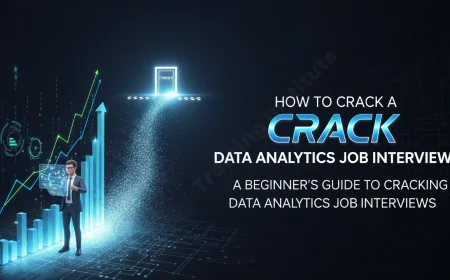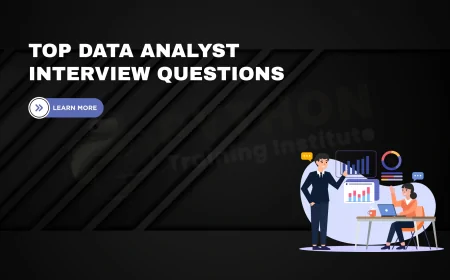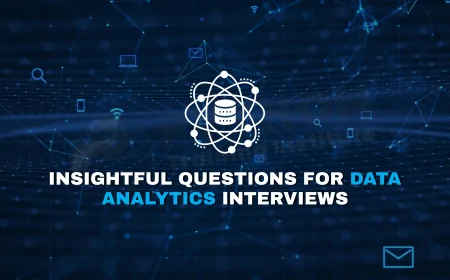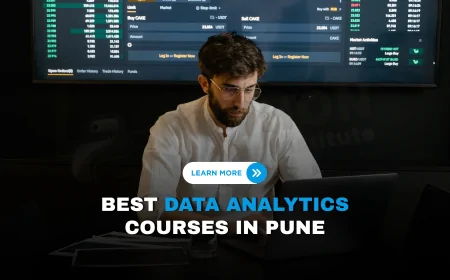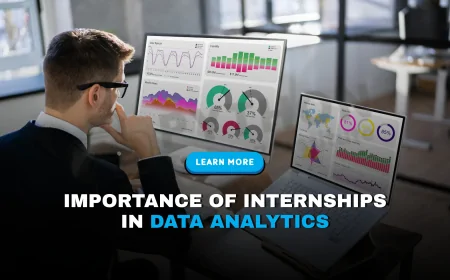Beginner to Expert Python Programming Courses Pune | Python Learning Journey: Beginner to Advanced Courses in Pune
Explore beginner to expert Python programming courses in Pune with certifications, real-world projects, and career support for all learning levels.
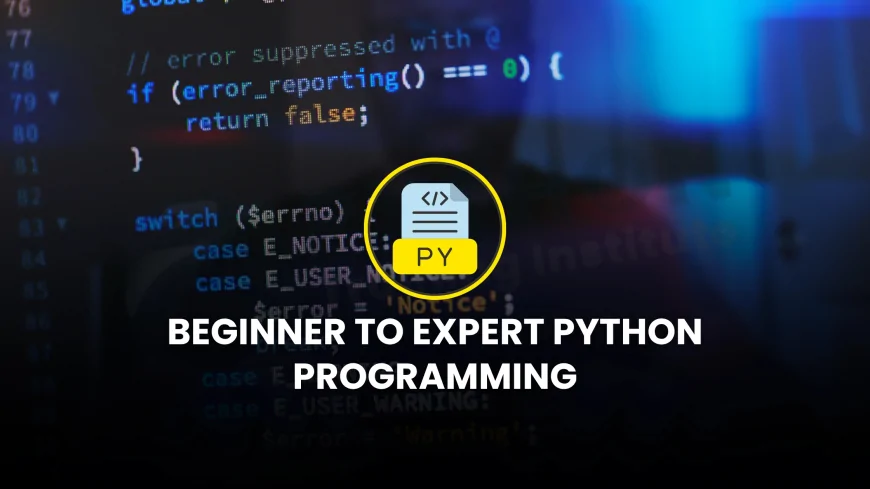
Table of Contents
- Introduction
- Why Structured Learning Matters
- Course Levels: Beginner to Expert
- Core Skills Covered
- Specializations and Career Paths
- Learning Formats & Mentorship
- Top Institutes in Pune
- Course Fees & Duration
- Who Should Enroll?
- FAQs
- Conclusion
Introduction
From scripting basics to building enterprise-grade applications, mastering Python begins with a structured course path. Pune offers a variety of training programs that guide learners from fundamental syntax to expert-level development—covering APIs, frameworks, data tools, and deployment. This article details the complete learning journey from beginner to expert Python programming, recommending top-rated courses and institutes in Pune.
Why Structured Learning Matters
Python is one of the easiest programming languages to start with, but jumping into advanced topics without a solid foundation can be overwhelming. That’s why structured learning is essential—especially when progressing from beginner to expert level.
1. Builds Strong Foundations
A structured course ensures that learners understand core concepts such as variables, loops, conditionals, and functions before moving to advanced topics like object-oriented programming or web development.
2. Eliminates Skill Gaps
When you follow a progressive curriculum, each level builds on the previous one—minimizing the chances of missing out on key programming principles, tools, or libraries.
3. Encourages Confidence
Completing structured modules step-by-step helps you feel more confident tackling real-world projects. You’re less likely to get stuck or overwhelmed compared to self-taught learners.
4. Prepares for Real-World Development
Most structured Python courses in Pune include practical applications like automation scripts, web apps, database integration, and API development—making you job-ready.
5. Offers Certification & Career Support
Reputable institutes provide certificates at each level—beginner, intermediate, and expert—which adds credibility to your resume and helps with job placements.
6. Aligns with Industry Standards
Structured learning often mirrors industry demands—covering tools like Git, Flask/Django, cloud deployment, and testing frameworks that companies actively seek in Python developers.
7. Provides Mentorship & Feedback
Unlike unstructured YouTube playlists or fragmented tutorials, a structured program offers instructor guidance, feedback loops, peer review, and community support.
In summary: If you're serious about building a career in Python development, a structured path—from beginner to expert—is not just helpful, it's essential.
Course Levels: Beginner to Expert
1. Beginner Level
- Python basics: variables, data types, control flow
- Simple scripts, functions, and file operations
- Error handling, lists, dictionaries
2. Intermediate Level
- Object-Oriented Programming (OOP)
- Working with modules and third-party libraries
- Simple GUI apps or scripts using Tkinter
- REST API creation with Flask
3. Advanced Level
- Full-stack web development with Django
- Database design and ORM (SQLAlchemy / Django ORM)
- Asynchronous Python and multithreading
- Testing frameworks (pytest, unittest)
4. Expert/Specialization Level
- Microservices and advanced API development
- Data science basics (pandas, NumPy), ML introduction
- DevOps integration and cloud deployment
- Performance optimization, Docker, AWS/GCP usage
Core Skills Covered
- Python syntax, data structures, OOP, and exceptions
- Web frameworks like Flask & Django
- RESTful services and JSON handling
- Relational and NoSQL databases
- Unit testing and CI/CD basics
- Version control (Git), deployment (Heroku, AWS)
Specializations and Career Paths
- Full-stack Web Developer
- Backend Engineer / Python Developer
- Data Engineer / Python for Data Analytics
- Automation or QA Tester
- DevOps/SRE with Python tooling
Learning Formats & Mentorship
Pune’s best courses offer:
- Live classroom or online options with small batches
- Weekend and evening slots for working learners
- Hybrid style combining live and self-paced modules
- 1-on-1 mentor feedback, code reviews, career sessions
- Recorded videos, labs, and Slack/Discord support groups
Top Institutes in Pune
• WebAsha Technologies
Comprehensive curriculum from basics to advanced Flask/Django, deployment, CI/CD, and live capstone projects. 100% placement assistance plus expert-led modules.
Course Fees & Duration
- Beginner courses: 4–6 weeks, ₹8,000–15,000
- Intermediate: 6–10 weeks, ₹15,000–25,000
- Advanced to Expert: 8–16 weeks, ₹25,000–60,000
- Many institutes offer bundled discounts for level progression
- EMI and referral discounts are common
Who Should Enroll?
- Absolute beginners starting tech careers
- Developers upskilling to full-stack or backend
- Professionals moving into data or automation roles
- College graduates seeking structured learning
- Freelancers building robust web/SaaS apps
Frequently Asked Questions (FAQs)
1. Do I need coding experience to start?
No—beginner courses assume zero prior experience.
2. How long to reach expert level?
A complete path may take 4–6 months with consistent learning.
3. Can I progress part-time?
Yes—weekend and evening programs allow upskilling alongside a job.
4. Is deployment covered?
Yes—deployment to Heroku, AWS, Docker, and CI/CD flows are taught in advanced modules.
5. Do I get certification?
Yes—course completion certificates; some offer PCEP/PCAP prep.
6. Are projects included?
At each level, learners build 2–4 real-world projects.
7. Will I learn databases?
Yes—ORMs (SQLAlchemy/Django), plus MySQL/PostgreSQL/SQLite skills.
8. What languages besides Python?
Basic HTML/CSS/JS for web development are included; data tracks include pandas/NumPy.
9. Is testing part of the course?
Definitely—unit testing with pytest/unittest and debugging practices are taught.
10. Do they teach API design?
Yes—Flask/Django REST frameworks, authentication, and versioning best practices.
11. Are mentors available?
Yes—dedicated mentors or instructors support learners throughout the course.
12. Can I switch formats mid-course?
Many institutes allow switching between online/live and self-paced segments.
13. Can I get placed after these courses?
Yes—top institutes provide placement support and mock interviews.
14. Do I need a laptop?
Yes—any basic laptop with Python installation is sufficient.
15. Are classes interactive?
Yes—with live Q&A, peer code reviews, and group activities.
16. Can I attend demo classes?
Most institutes offer free demo sessions before enrollment.
17. Is Python enough for a developer role?
Yes—full-stack, backend, data, and automation roles are all Python-friendly.
18. Do advanced courses cover AI/ML?
Some include modules for data pre-processing or introduction to ML.
19. Will I get career support?
Yes—resume reviews, LinkedIn optimization, hiring drives, and placement interviews.
20. How do I choose the right level?
Evaluate your experience—start at the level where you feel comfortable, and advance from there.
Conclusion
Building Python skills from beginner to expert requires a phased, structured approach—and Pune offers a vibrant ecosystem to support that journey. Courses across levels in WebAsha and others provide practical training, certification, mentorship, and job-readiness. Choose a pathway that aligns with your goals and take your Python journey to the next level!
What's Your Reaction?
 Like
0
Like
0
 Dislike
0
Dislike
0
 Love
0
Love
0
 Funny
0
Funny
0
 Angry
0
Angry
0
 Sad
0
Sad
0
 Wow
0
Wow
0







